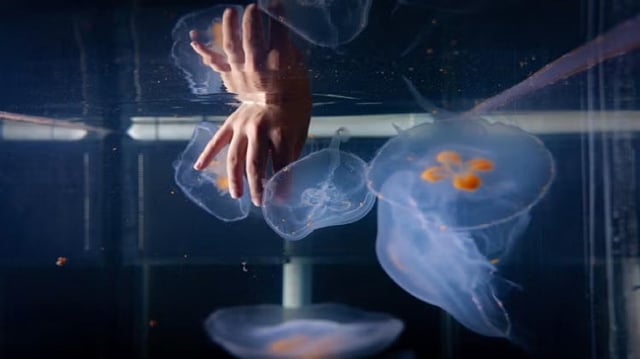Overview
- Researchers fitted moon jellyfish with microelectronic stimulators that trigger swim contractions, allowing controlled turns and direction changes.
- The team aims to integrate temperature, pH, and visual sensors so the animals can carry instruments into hard-to-reach parts of the ocean.
- A late-July study in Physical Review Fluids detailed biodegradable tracer particles that visualize jellyfish-driven flows while reducing toxicity in lab work.
- Ethical monitoring continues as the lab reports healthy, reproducing jellies and refines methods to minimize stress during research.
- Initial open-water steering trials occurred in 2020 off Woods Hole, and current efforts focus on improving control and preparing for future field deployments.

